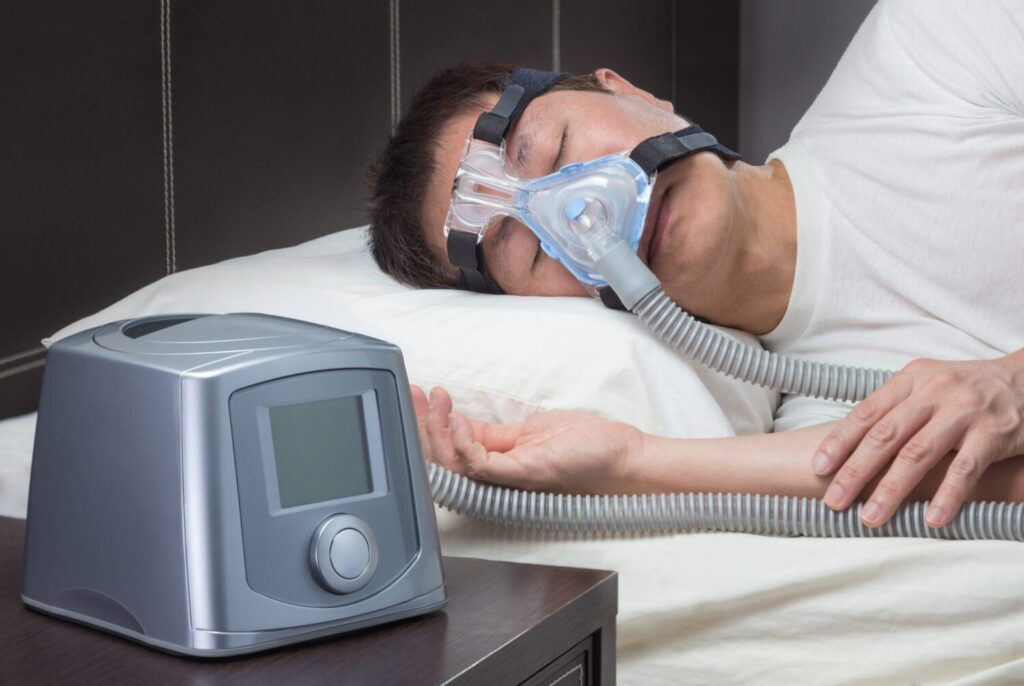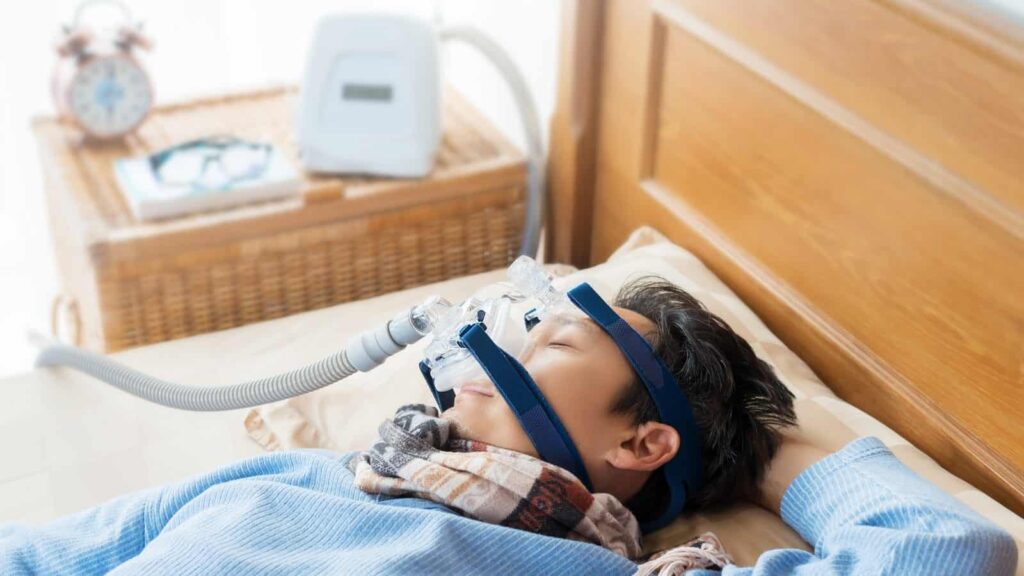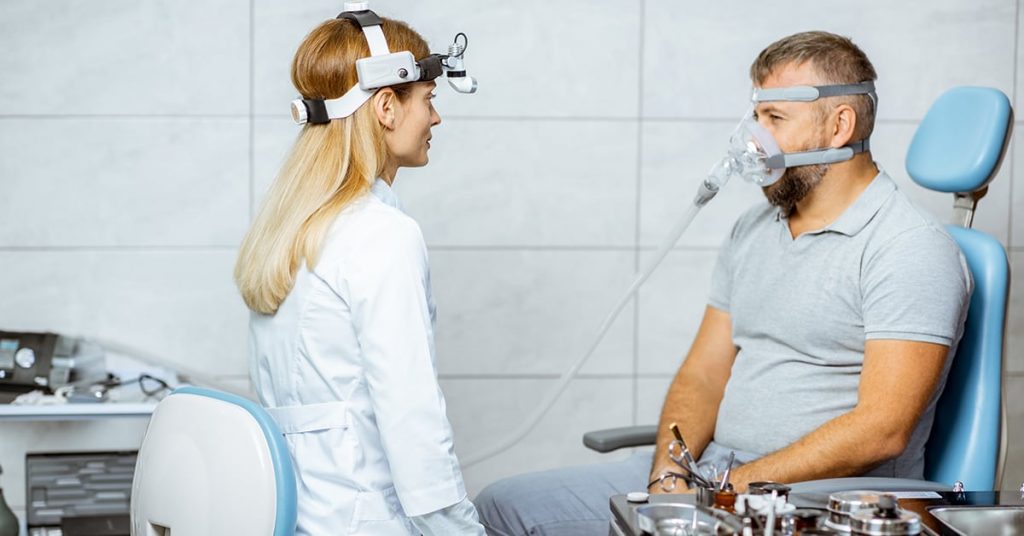While a heart-healthy diet and regular exercise can assist in maintaining good health and longevity, these two factors may not be sufficient for your heart. It turns out that getting enough sleep every night is just as crucial for your heart health as diet and exercise.
The world was shocked when news of the death of renowned Star Wars actress Carrie Fisher surfaced in 2017. According to reports, she died of a heart attack worsened by obstructive sleep apnea (OSA). She was sixty years old.
People are now wondering if snoring is truly that damaging if not treated with sleep apnea machine. Is it possible to die from untreated sleep apnea? The quick answer is yes. And here is why;
Is Untreated Sleep Apnea Dangerous?
According to the American Sleep Apnea Association (ASAA), 38,000 people die in the United States each year due to cardiac disease worsened by sleep apnea. As a result, according to the American Heart Association, one in every five persons suffers from sleep apnea, which is more common in men than in women. According to Jonathan Jun of the John Hopkins Sleep Disorders Center, sleep apnea affects 3% of people of normal weight and 20% of obese people.

Undiagnosed sleep apnea is linked to an increased risk of cardiovascular and metabolic health issues such as diabetes. It is fairly prevalent, but the problematic part is that most people are unaware they have this problem. Learn more tips about sleep apnea.
Some scientists say that you do not actually die from suffocation caused by sleep apnea since the body will jolt you awake if it does not obtain enough oxygen. That isn’t quite the point. Death, on the other hand, is the result of unavoidable problems. So, how exactly can sleep apnea harm your health?
Because sleep apnea alters the body’s circadian rhythms, it creates brain and body chemistry imbalances and impairs cardiac and respiratory functioning. As a result, it affects the heart by increasing heart rate and raising blood pressure.
Here is a list of potentially fatal illnesses that can cause or worsen obstructive sleep apnea:
- Asthma
- High blood pressure
- Obstructive pulmonary disease (COPD)
- Unexpected cardiac death
- Type 2 diabetes
- Stroke
Sleep Apnea Warning Signs
While snoring is the most prevalent symptom of sleep apnea, it is crucial to realize that not everyone with the disease snores. Also, not all snorers have obstructive sleep apnea. Snoring can be caused by a sinus infection, swollen tonsils, nasal congestion, and other reasons.
While most individuals snore occasionally, OSA is a little different. As previously said, most persons with sleep apnea are unaware of their condition. So, what are the red flags? Here are a few things to keep an eye out for:
- Even after a good night’s sleep, you wake up exhausted and sluggish.
- Having a painful throat when you wake up
- Having headaches when you wake up
- Sounds of choking or gasping
- Snoring that is loud and continuous
- Pauses in breathing that are silent
- Sleep deprivation
- Irritability
- A lack of energy during the day
- Feeling tired when driving
- Frequent trips to the restroom
- Insomnia
- Forgetfulness
- Reduced sexual urge
- Depression and anxiety
The fact remains that untreated sleep apnea patients have a shorter life expectancy. People with OSA (whether undiagnosed or purposefully left untreated) are:
- More likely to have a heart attack (according to a 2001 research from the American Journal of Respiratory Critical Care Medicine)
- Three times more likely to die early (based on an 18-year research from Wisconsin Sleep Cohort in 2008)
- 2 to 3 times more likely to have a stroke (American Journal of Respiratory and Critical Care Medicine, 2010)
- Heart attack risk is increased by 30%. (for people with sleep apnea for more than five years, Yale University)
- Another troubling finding from the Wisconsin Sleep Cohort in 2008 is that persons with severe sleep apnea are 42 percent more likely to die from heart disease.
- According to The New England Journal of Medicine, sleep apnea patients are more likely to have heart attacks and die while sleeping. Those who do not suffer from sleep apnea die of heart attacks throughout the day.

Effectively Treating Sleep Apnea
Here is a summary of the most effective treatment methods currently available to alleviate the dread of life-threatening disorders caused by untreated sleep apnea.
Positive Airway Pressure (PAP) Machines
Positive airway pressure, which comes in several forms, is the most common and successful treatment for sleep apnea.
The most prevalent approach is Continuous Positive Airway Pressure (CPAP). It entails using a breathing mask attached to a flexible tube and supplied with continuous air that is somewhat stronger than ambient air, just enough to keep the patient’s airways open.
You cannot totally eliminate snoring with CPAP or other breathing equipment. Rather, keeping the airway open and preventing it from compressing during sleep minimizes the frequency of respiratory episodes. In other words, when taken, it inhibits snoring and provides a pleasant night’s sleep.
Prescriptions are required for CPAP and other breathing devices. The doctor determines the airflow pressure setting based on the measurements they took during their diagnosis.
The issue with CPAP and other breathing devices is that some people find wearing a mask during sleep to be inconvenient and uncomfortable. Furthermore, the gadget can generate disturbing noises for those in the bedroom.
Mouth Appliances
For individuals who do not want to use CPAP machines, mouth appliances such as mandibular advancement devices (MAD) or tongue holding devices can be prescribed (TRD). TRD works by keeping the tongue from sliding all the way back to the mouth during sleep, whereas MAD works by maintaining the lower jaw a bit forward to open the air route.
Neurostimulation and Surgical Procedures
Doctors may recommend neuro-stimulation therapy in more serious situations to keep the muscles around the lips from closing while sleeping.
Surgery is recommended for those who have OSA due to an airways obstruction. This frequently involves the removal of tissues, adenoids, tonsils, and other organs.
